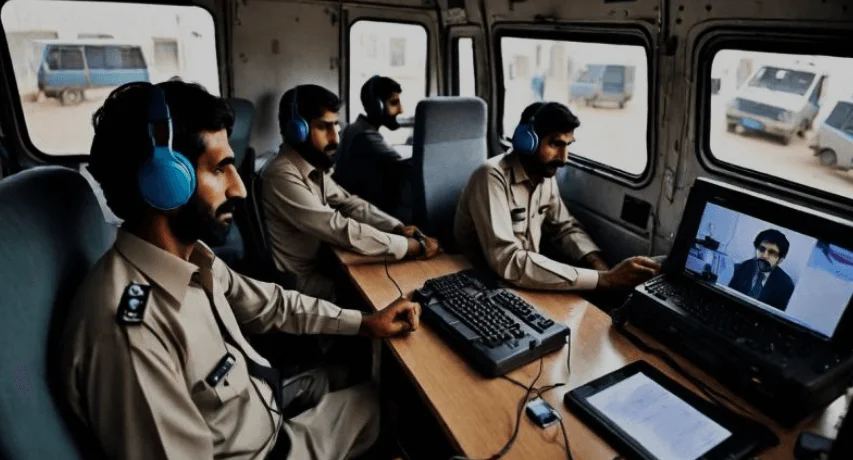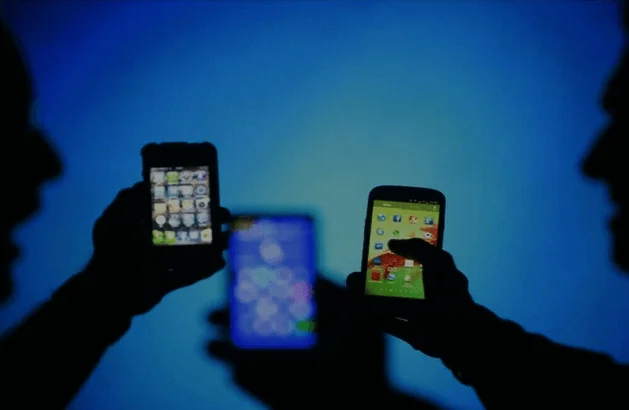
Reported in a notification recently; the Ministry of Information Technology and Telecommunication has officially sanctioned this listening and tracing act by the Inter-Services Intelligence (ISI) in the so-called name of ‘national security’. This transfer also allows ISI profound jurisdictions by virtue of section 54 of the Pakistan Telecommunication (Re-organization) Act 1996.
Notification Details
The official notification, issued on a Monday, specifies that the authorization allows ISI officers, not below the rank of grade 18, to intercept calls and messages or trace calls through any telecommunication system. The authorization aims to address national security concerns and the apprehension of offenses.
“In exercise of the powers conferred under Section 54, the federal government, in the interest of national security and in the apprehension of any offense, is pleased to authorize the officers not below the rank of grade 18 to be nominated from time to time by the Inter-Services Intelligence (ISI) to intercept calls and messages or to trace calls through any telecommunication system as envisaged under Section 54 of the Act,” the notification read.
Legal Background

Section 54 of the Pakistan Telecommunication (Re-organization) Act, 1996 entitles the federal government as permitting any person or persons to intercept calls and messages or to trace calls in the interest of the national security or in the commission or prevention of offenses. This section supersedes any other law in force providing the federal government the discretion of enacting such measures whenever perceived relevant.
Previous Court Involvements
In December, the Islamabad High Court (IHC) addressed a related issue concerning audio leaks. Attorney General for Pakistan (AGP) Mansoor Usman Awan did not give any intelligence agency the audacity to spy on the audio talk. It was done after Bushra Bibi, wife of the now former Prime Minister Imran Khan, sought to have authorities take action against the leakage of what is presumably a telephone call conversation where her and PTI’s Latif Khosa are etched.
Bushra Bibi through her petition claimed that the recording was a violation of her rights of dignity and privacy under Article 14 of the constitution of Kenya. The petition, filed through Khosa, named the principal secretary to the prime minister and the secretaries of defense and interior as respondents.
In May, Justice Babar Sattar of the IHC stated that the state does not authorize officials to surveil citizens and that anyone engaging in or aiding such activities would be “liable for offenses”. He also prohibited cellular companies from sharing citizens’ data with agencies.
Government’s Position
Law Minister Azam Nazeer Tarar briefed the National Assembly, emphasizing that the authorization is not a new law but an enforcement of an existing provision from 1996. He stated that previous governments had not altered this provision, and it remains intact.
The minister highlighted that the federal government issues notifications periodically in this regard. He cited instances where the interception of calls by intelligence agencies under this law helped apprehend individuals involved in serious crimes.
Reactions And Criticism
The Pakistan Tehreek-e-Insaf (PTI) party particularly upset about the notification and the threats to privacy and human rights it may pose. They argued that granting “unlimited powers for phone tapping to authorities” compromises privacy and could drive businesses away from Pakistan. The party’s official statement on X (formerly Twitter) claimed that the Strategic Investment Facilitation Council (SIFC) initiative is already struggling and that this move could further hinder its mission.
Shireen Mazari, the former human rights minister also condemned the authorization of the Social Media Regulation Bill referring to it as the release of George Orwell’s “1984” novel in which oppressive governments attempt to regulate censorship and surveillance to prevent free speech.
Conclusion
Finally, it can be stated that the Pakistani government has allowed the Inter-Services Intelligence (ISI) to first monitor and then track phone calls under the pretext of it being for the ‘security of the country’. This has created controversy, the political opponents believe this is a violation of privacy and human rights. The government argues that this is compliance with a section from 1996, but opposition parties and politicians such as Shireen Mazari criticize this.
In my view, such decision might be rather reckless, and perhaps even leads to the breach of Pakistani citizens’ privacy. As much as national security is plausible, its achievement should not be the expense of citizen’s rights and freedom. The government must guarantee that they make surveillance activities as transparent and accountable as possible, and they will not abuse these activities.
Regarding the question about the authorization of the Pakistani government to ISI to intercept and trace calls, people have the following views: In your opinion, is it the required step to enhance the national security or the violation of people’s rights and personal freedom? Share your thoughts and let’s continue the discussion! What are the possible ways for the governments to address security threats within countries and protect the human rights and liberties?

